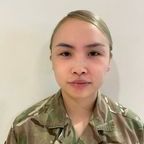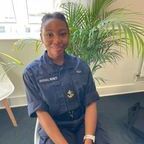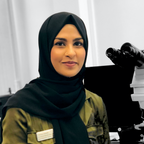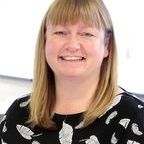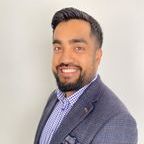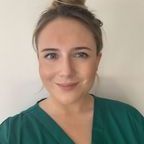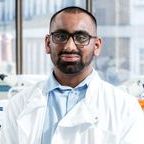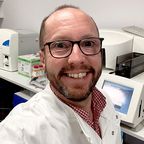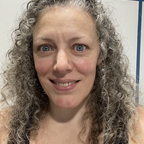Our popular student congress programme is - now sold out!
Free to attend, this year's event features speakers from a huge range of biomedical science backgrounds covering a wide basis of knowledge on the profession - ensuring attendees get the latest information on careers, securing employment and lab placements in biomedical science.
Come early and visit the UK's largest biomedical science exhibition
The event starts from 1pm but students are advised to come for the day and visit our free exhibition - the UK's largest biomedical science show featuring many of the leading companies and organisations displaying and demonstrating instrumentation and equipment as well as providing professional services, including recruitment consultants.
Please note that though Student Congress is free to attend, lunch will not be provided. Places are limited to only 285, so book early to avoid disappointment.
This event is free for all students - lecturers and careers advisors are welcome to attend too.
Speaker Schedule:
13:00 - 13:30 | Session 1: Introductions
- Welcome & Introductions – Sue Jones
-
Routes to Registration - Sue Jones
This presentation will provide an overview of the four routes to registration as a biomedical scientist that the IBMS is approved by the Health and Care Professions Council (HCPC) to deliver.
To be able to practice in the UK as a biomedical scientist, students need to fulfil both the HCPC standards of education and training (by completing an IBMS accredited BSc Biomedical Science programme, or a non-IBMS-accredited degree followed by “top-up” modules) and the HCPC standards of proficiency by completing the IBMS Registration Training Portfolio in an IBMS approved training laboratory.
IBMS laboratory training approval is essential in ensuring that the standards of training are appropriate to support candidates to successfully complete the IBMS Registration Training Portfolio.
Successful completion of an IBMS accredited BSc Biomedical Science programme (or non-accredited degree followed by “top-up” modules) in addition to completion and verification of the IBMS Registration Training Portfolio allows graduates to receive the IBMS Certificate of Competence and apply for registration with the Health and Care Professions Council (HCPC) to work under the legally protected title of Biomedical Scientist.
13:30 - 13:50 | Session 2: Clinical Pathology Placements
What is starting and completing a placement like? – Claire Wright, Ella Wharram, Luke Kay
Having an academic degree with work placement can be a key differentiator for securing employment following graduation. In a competitive graduate employment market, an employer can see the completion of a placement as an important benchmark indicating commitment, discipline, and core knowledge/skills in their sector. For the student, advantages include the implementation and development of skills, improved academic performance in the final year of study, a wider network for career opportunities, and potentially higher starting salaries upon completion of the degree.
However, the decision to apply for a Biomedical Science placement is complex and one to be carefully considered. Frequent questions include “When and how do I apply for a placement? What will I do during the placement? Who will I work with? Is it for me? How does my role help patients?” and many more.
To help you consider these important questions, two students who have recently completed their placement year will describe their experience of a year-long placement in NHS laboratories. One of the students will provide you with their experience of the application process and starting in the laboratory. The second student will give you a first-hand account of life as a placement student and completion of the registration portfolio.
Registration Portfolio Verification – Cherie Beckett
The traditional route of registering as a Biomedical Scientist with the HCPC involves the necessary academic qualifications, a period of training in an IBMS accredited training laboratory, completion of the IBMS registration portfolio and successfully passing the end verification to obtain the certificate of competence. The verification process - as with other examination processes - can, however, be daunting for both the candidate and the verifier, but it needn't be.
This talk hopes to demystify the process, including, detailing what happens on the day for both virtual and in-person verifications with top tips for verifiers themselves, but also, reassurance and information for the candidate and training officer.
14:30 - 15:00 | Break for networking and refreshments
15:00 - 15:40 | Session 3: Specialism Lightening Talks
Haematology - Hasan Rao
Join us, as we delve into a case of neonatal jaundice. Abnormally high bilirubin levels in neonates can be potentially life threatening. With bilirubin's ability to cross the blood-brain barrier it can lead to permanent brain damage (kernicterus). Time is of the essence! We will run through the treatment and management of jaundice. Using lab findings, we will aim to identify the underlying cause in this case.
Histology - Chris Jackson
This presentation will be an introduction to the world of Histology. It will serve as an introduction to those unfamiliar with the type of work that is conducted in an NHS Histopathology laboratory and where the future of the service is heading.
Microbiology - Alexandra Ellwood
Biomedical Scientists as a profession are often overlooked in the medical field and Pathology is a discipline that is unknown to many. This presentation will give you an insight into what happens in a Medical Microbiology laboratory in the NHS, the importance what Biomedical Scientists do in the patient care pathway and hopefully inspire the next generation of Healthcare Scientists.
15:40 - 16:00 | Networking Break for Specialisms Q&A
16:00 - 16:45 | Session 4: After Graduating
- Career Paths after a Biomedical Science Degree - Lightning Talks:
16:00 | Industry Roles - James Cameron (Hologic)
16:30 | Military Roles - Lucy Castle (Royal Navy) & Olivia David (RAF)
Delivered by newly qualified BMS serving in the armed forces, the aim of this presentation is to give the audience a further understanding of the education and training required to become a military Biomedical Scientist.
We will explore the key roles undertaken by military BMS and explain the unique professional development opportunities available via this career path. Attendees are encouraged to come as it gives the opportunity to ask questions and gain insight into this career.
16:45 - 17:00 | Session 5: Closing
-
Closing Remarks – Claire Wright
Speaker profiles:



